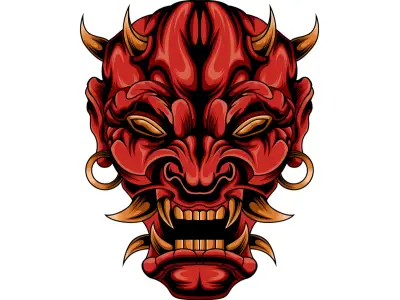You've crafted a masterpiece; now it's time to share it with the world. The path to publishing, though, can often feel like a maze, brimming with choices and decisions. Figuring out where to start can be the hardest step in publishing your work.
Whether you're a budding author dreaming of seeing your work in print or an established writer considering new avenues, understanding the differences between traditional and self-publishing is essential. This guide aims to demystify the process, offering clear, engaging insights into both paths.
Jump to:
- What is Traditional Publishing?
- How to Get a Publisher for a Book
- How to Choose the Best Literary Agent
- How Much Does It Cost to Publish a Book?
- What Are the Advantages and Disadvantages of Traditional Publishing?
- What is Self-Publishing?
- How to Self-Publish a Book
- How to Self-Publish on Amazon
- How Much Does It Cost to Self-Publish a Book?
- What Are the Advantages and Disadvantages of Self-Publishing?
- How Much Does an Author Make Per Book?
- What Are Book Royalties?
- How Much do Self-Published Authors Earn?
- Do You Make More Money With a Publisher or Self-Publishing?
- Publishing vs Self-Publishing – Which is Better?
What is Traditional Publishing?
Traditional publishing involves partnering with a publishing house to produce, distribute, and market your book. The process typically starts with you submitting your manuscript or book proposal to a publisher or literary agent. This route offers the expertise of experienced publishing professionals and can significantly boost the visibility and credibility of your work.

How to Get a Publisher for a Book
Securing a traditional publisher requires finding a literary agent first. Follow these three steps to finding a publisher:
- Research with Precision: Research literary agents and publishers currently open to new submissions. Pay close attention to their specific interests and guidelines. Your book must align well with their published niche, ensuring a better fit for their portfolio.
- Submit Your Best Work: Once you've identified potential agents, submit your polished manuscript or a well-crafted book proposal. Patience is key here, as agents may take several months to review your submission. They're assessing not just the quality of your work but also its fit with current publishing trends and goals.
- Collaborate and Create: After securing a partnership with a publisher, a new phase of collaboration begins. Your publisher will take on the responsibility of bringing your book to life. This includes managing all production stages — from meticulous editing and creative design to your book's actual printing and distribution. But their role extends beyond production; they are instrumental in promoting your book. Using their extensive networks and resources, they ensure your book gains traction among retailers and captivates readers' interest, broadening its reach and impact.
How to Choose the Best Literary Agent
Literary agents act as intermediaries, using their industry knowledge and connections to pitch your book to publishers. So, it’s important to select the right agent for you. Start with thorough research into their professional background. Look into the books and authors they've previously represented to gauge their success and expertise, especially in your book's genre.
Understanding their area of specialisation is key. An agent experienced in your genre will have the right knowledge and publisher connections, which is essential for pitching your book effectively. Additionally, ensure that their approach and aspirations align with yours. The right agent should understand your vision for your book and have a working style that complements your own. This synergy is important for a successful collaboration that feels rewarding and productive.
How Much Does It Cost to Publish a Book?
In traditional publishing, the publisher bears the costs of producing, distributing, and marketing your book. As an author, you typically do not pay any upfront fees in this scenario. However, it's important to note that while you avoid direct costs, your earnings per book will be in the form of royalties, usually a percentage of the book's sale price and can be lower than self-publishing.

What Are the Advantages and Disadvantages of Traditional Publishing?
Traditional publishing has its own set of pros and cons. It's important to weigh these carefully when deciding how to publish your work. Here are the key advantages and disadvantages:
Advantages:
- Professional Editing and Design: Your book benefits from professional editing, design, and production quality.
- Marketing and Distribution Support: Publishers handle marketing and distribution, increasing your book's reach and visibility.
- Established Reputation: Using a recognised publisher can lend credibility and prestige to your work.
- No Upfront Costs: The publisher covers all production costs, from editing to distribution.
- Advance Payments: Authors may receive an advance against royalties.
Disadvantages:
- Less Creative Control: Authors often have limited control over the book’s final appearance and content.
- Lower Royalties: Royalties per book sold are typically lower than in self-publishing.
- Slow Process: The journey from manuscript submission to book publication can be lengthy.
- Tough Entry: Getting a publishing deal can be challenging and often requires an agent.
- Limited Focus on Individual Authors: Publishers with many authors might not give extensive attention to promoting your book.Top of Form
What is Self-Publishing?
Self-publishing puts you in complete control of the book publishing process. This path begins with you creating your content, including writing and editing your manuscript, and ensuring it aligns with your vision and appeals to your audience. The responsibility extends to the design and formatting aspects, from crafting an engaging cover to preparing your manuscript for publication in various formats, such as digital and print. In this model, you're also tasked with acquiring an ISBN for your book, which is essential for sales and distribution.
As the author, you're in charge of promoting your book, which may involve social media, online advertising, book signings, and reaching out to reviewers. Additionally, managing the financial side of things, like setting the price, overseeing sales, and handling earnings, falls to you.

How to Self-Publish a Book
Self-publishing a book involves a series of steps to turn your manuscript into a published work. Here's a quick guide to the actions you'll need to take:
- Write and Edit: Complete your manuscript and thoroughly edit it for quality. Get inspired with the best writing podcasts.
- Design a Cover: Create or hire someone to design an appealing cover.
- Format Your Book: Format your book for eBook and print formats.
- Obtain ISBN: Get an ISBN for your book for identification.
- Choose a Platform: Select a self-publishing platform (e.g., Amazon Kindle Direct Publishing).
- Upload Your Book: Upload your manuscript and cover to the platform.
- Set a Price: Decide on pricing for your book.
- Publish: Publish your book on the platform.
- Market Your Book: Promote your book through social media, websites, reviews, etc.
- Monitor Sales: Keep track of sales and gather feedback for improvement.
How to Self-Publish on Amazon
Platforms like Amazon have revolutionised self-publishing, making it more accessible. Here, you can publish eBooks and paperbacks, easily reaching a global audience. The process involves preparing your manuscript, designing a cover, setting your book's price, and uploading it to Amazon's Kindle Direct Publishing platform.
How Much Does It Cost to Self-Publish a Book?
The cost of publishing your book depends on several aspects, such as the length of your book, the design of your cover, and your marketing plans. Additionally, there are smaller but important costs, like buying an ISBN and paying for professional editing and layout services. All these factors together determine the total cost of self-publishing, which can range from a modest amount to several thousand pounds, depending on the scale and quality of your publishing project.
What Are the Advantages and Disadvantages of Self-Publishing?
Self-publishing a book offers unique benefits and challenges compared to traditional publishing routes. Here's a breakdown of the key advantages and disadvantages:
Advantages:
- Full Creative Control: You have complete control over every aspect of your book, from content to cover design.
- Higher Royalties: You can earn a higher percentage of sales as royalties compared to traditional publishing.
- Faster Publication: The process is often quicker, allowing your book to reach the market sooner.
- Direct Customer Interaction: You directly relate with your readers, offering valuable insights and feedback.
- Niche Market Accessibility: Ideal for targeting specific or niche audiences that traditional publishers might overlook.
Disadvantages:
- Higher Upfront Costs: You bear the initial costs for editing, design, printing, and marketing.
- Marketing and Distribution Responsibilities: Promoting and distributing your book falls entirely on you.
- Limited Reach: Self-published books often have less reach in distribution and visibility in bookstores.
- Quality Concerns: Without professional guidance, there's a risk of lower quality in editing, design, and overall presentation.
- Time-Consuming: Managing all aspects of publishing can be time-consuming and requires a diverse set of skills.
Financial Aspects of Publishing

How Much Does an Author Make Per Book?
The earning potential varies significantly between traditional and self-publishing. In traditional publishing, authors receive royalties, a percentage of the book's sale price.
What Are Book Royalties?
Book royalties are payments that authors receive as a percentage of the sales of their published works. These royalties are typically agreed upon as part of the publishing contract and are calculated based on either the book's retail price or the net price. The royalty rate varies depending on the publishing format, the author's negotiation skills, and the publisher's policies.
In traditional publishing, royalties are often lower per unit. Still, they can lead to larger overall earnings due to higher sales volumes, while in self-publishing, authors might earn higher royalties per unit but have smaller sales volumes. Royalties in traditional publishing typically range from 5% to 15% of the book's price. However, this can vary based on the publisher, book type, and sales volume.
How Much do Self-Published Authors Earn?
In self-publishing, authors make more per book since they bypass the publisher. However, they also shoulder the initial costs. Your earnings are directly influenced by the success of your book's sales.
Do You Make More Money With a Publisher or Self-Publishing?
This depends on various factors, including your book’s success, the publishing route chosen, and how much effort you put into marketing.
Recommended for you!
Best SellersPublishing vs Self-Publishing – Which is Better?
Now you’ve learnt about both types of publishing, it’s time to decide which is better for you. Your choice depends on your goals, resources, and commitment level. Traditional publishing offers expertise and resources but less creative control and potentially lower royalties. Self-publishing offers full control and higher per-book profits but requires more upfront investment in time and money. Remember, whether you choose the support of a traditional publisher or the independence of self-publishing, the journey of bringing your book to life is a remarkable achievement.
Take the First Step to Publishing With Centre of Excellence
Interested in mastering the art of writing? Our Creative Writing Diploma Course provides the tools and knowledge to enhance your writing skills. Enrol today and enjoy benefits including:
- Comprehensive Skill Development: Offers a wide range of tools and techniques to improve various aspects of writing.
- Expert Guidance: Learn from experienced writers and educators who provide insights and feedback.
- Flexibility: Designed to fit around your schedule, allowing you to learn at your own pace.
- Diverse Genres: Covers different writing genres, helping you explore and find your niche.
- Interactive Learning: Includes practical exercises and assignments for hands-on experience.
- Community Access: Connect with fellow aspiring writers, creating opportunities for collaboration and feedback.
For a limited time, this comprehensive course is available for just £29 using the link above.












